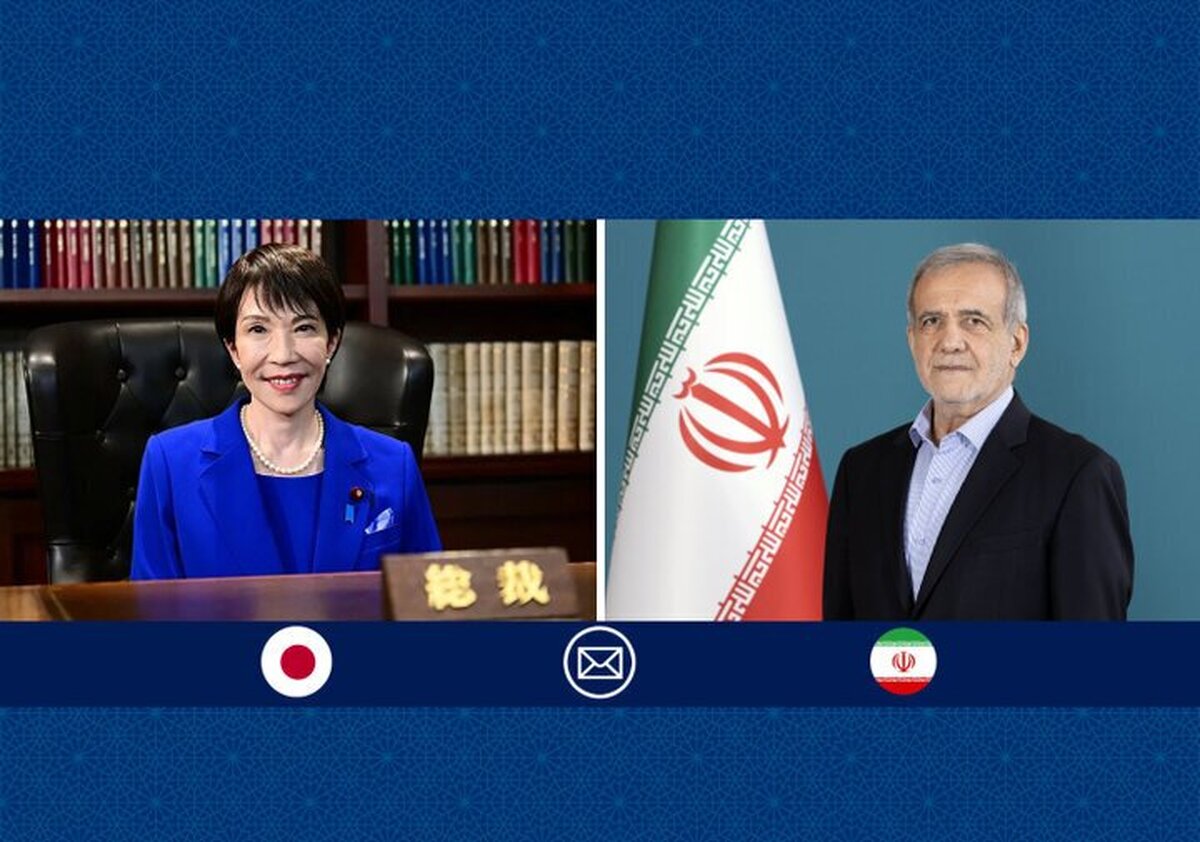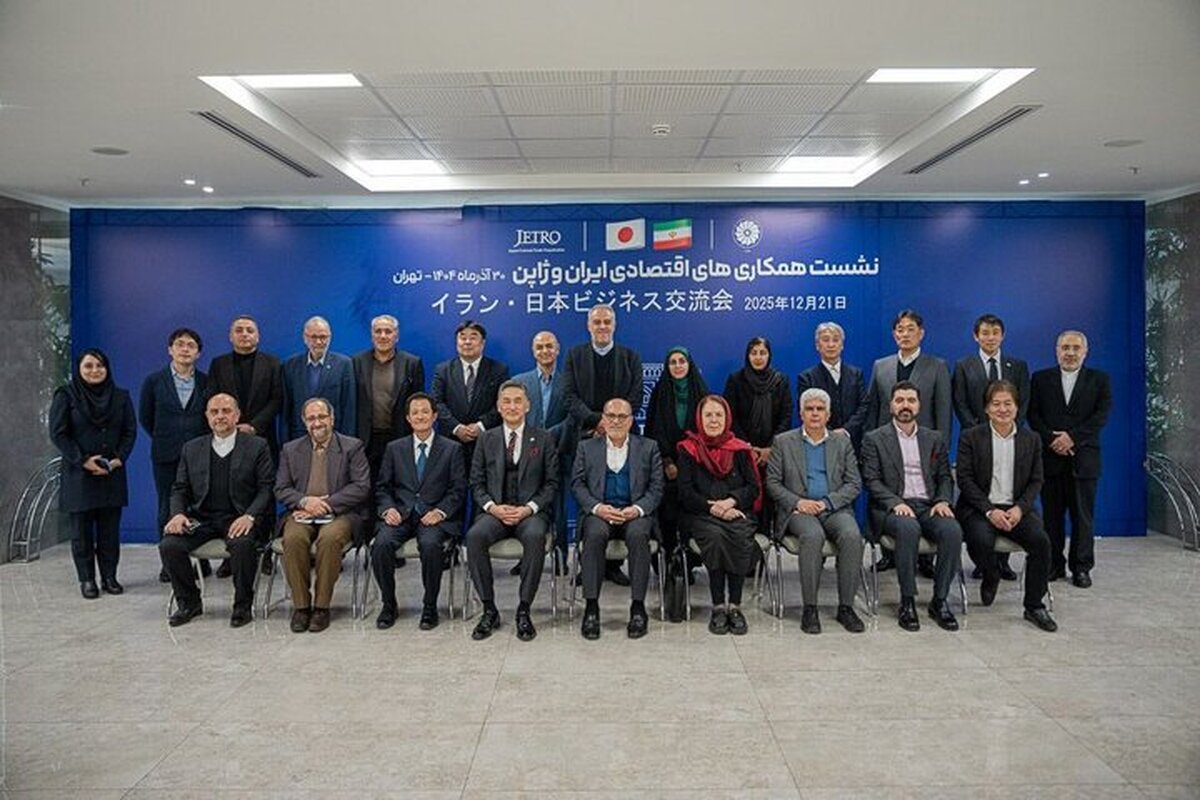
JICA Strengthening Economic Relations Between Iran, Japan
EghtesadOnline: The general policy of the Japanese government and Japan International Cooperation Agency is to strengthen economic relations between Iran and Japan, chief executive officer of JICA in Iran said.
Addressing the fourth Joint Coordinating Committee meeting held at Qeshm on Monday, Hiroyuki Tanaka added that JICA’s comprehensive plan was launched in Qeshm in 2015 to create conditions for the development of the island based on the participation of local communities, along with ensuring environmental protection, IRNA reported.
He underlined that the Japanese government intends to promote the stable development of Iranian economy by sharing experiences and undertaking joint cooperation programs.
Tanaka noted that Qeshm Island has a unique ecosystem and rich natural resources, the preservation and protection of which can attract more tourists to Iran and bring about economic prosperity, according to Financial Tribune.
“The natural environment provides essential resources for human life, such as water, food and medicine,” he said.
“One of the main development bases of the island is the establishment of a relationship between all the people of the region and the creation of a synergy between the ecosystem and the human community.”
Tanaka said the comprehensive plan is approaching its final stages, which does not mean the end of cooperation, therefore the Free Zone Organization of Qeshm should continue to implement pilot projects and maintain its regulatory role.
The Japanese government started Official Development Assistance activities in Iran in 1957 and JICA officially established a Tehran office in 1974. In the almost 60 years of Japan’s assistance program, JICA has helped Iran implement many projects with government agencies and local officials, particularly in the field of environmental conservation.
Last year, in an interview with Financial Tribune, the former representative of JICA in Iran, Yukiharu Kobayashi, said, “We are in charge of the implementation of overseas projects, the money for which comes from ordinary Japanese taxpayers. The government allocates the budget to JICA and decisions on what projects to carry out are made by our Ministry of Foreign Affairs.”
The official said JICA has three tools by which it implements ODA projects.
“One is yen loans which are very concessional loans in Japanese yen with a long-term repayment period. The most recent example of such a project in Iran is the hydropower plant in Masjed Soleyman Dam. The aim was to introduce Japanese technology and know-how to generate efficient electricity,” he said.
Kobayashi added that the second tool is grants extended to projects in different countries.
“We haven’t offered grants to Iran so far. We are now in talks with the Ministry of Health to provide Japanese medical devices for diagnosing cardiovascular and other non-communicable diseases. Another grant project is concerned with air pollution where we will be providing some Japanese equipment and devices for inspecting and checking exhaust gas from cars so that Tehran Municipality can analyze air pollution more accurately and take better measures to battle it,” he said.
The JICA representative added that the third tool is called “technical cooperation” whereby Iranian government officials are invited to Japan for training or Japanese experts visit Iran to teach and transfer their knowledge.
“In these projects, we spend money in the form of providing airfares, accommodation expenses, purchasing devices and equipment, and covering other related expenses. Again, Japanese taxpayers’ money is utilized to implement the technical cooperation projects,” he said.
Since the beginning of its activity in Iran until 2017, the Japanese government and JICA spent more than $998 million ($253.7 million on technical cooperation projects and $744.4 million on yen loan or ODA projects) in Iran.
Kobayashi further said 3,509 Iranian participants have taken part in training programs in Japan and 1,205 Japanese experts have been assigned to projects in Iran to date.
“One important goal we pursue is that we hope by carrying out ODA projects in Iran we can encourage and support the inflow of [investments] of Japanese private sector to this country. If we can successfully implement ODA projects, by which equipment, machinery and knowhow from the Japanese private sector enters Iran, this can be a kind of catalyst that will encourage Japanese businesses to take part in other projects in the country,” he said.
“We can serve as a threshold introducing Japanese companies to the Iranian market and later on these businesses can start investing in other projects in different fields.”
Japan and Iran signed a treaty to protect investments by Japanese companies across various sectors of the Iranian economy in February 2016. The treaty, which took effect on April 26, 2017, is seen as incentive for Japanese companies considering investments, including midstream petroleum businesses, in Iran, according to the Japanese Ministry of Economy, Trade and Industry.
Possible Japanese investments in Iran could include petroleum, gas development, refinery and petrochemical projects.
JICA’s priority areas in Iran include: strengthening infrastructure, job creation, disaster risk reduction, water resources management, conservation of natural environment, global warming management and relations with the international community.



